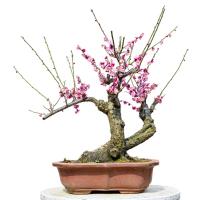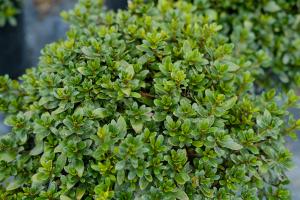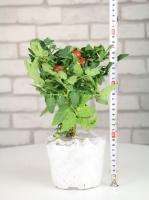Are Tomatoes and Dill Companion Plants?
Companion planting is the practice of cultivating different plants together for mutual benefits. Some plants are natural companions and can enhance each other's growth and flavor, while others have a negative effect on their neighbors. In this article, we will explore whether tomatoes and dill are companion plants and how they influence each other.
The Benefits of Companion Planting
Companion planting has many advantages, such as improving soil fertility, reducing pest and disease problems, and enhancing nutrient uptake. Some plants are also known to repel certain pests or attract beneficial insects, which can help protect neighboring crops. Furthermore, companion planting can make the most of limited space, allowing gardeners to grow multiple types of plants in a single bed or container.
Tomatoes and Dill: Friends or Foes?
Tomatoes and dill are often grown together in home gardens, but whether they are true companions is a subject of some debate. On one hand, dill is said to attract predators like hoverflies and ladybugs, which can control aphids and other harmful insects that would otherwise attack tomato plants. Additionally, dill can serve as a natural mulch, helping to retain moisture and suppress weeds around the base of tomato plants. On the other hand, some gardeners believe that dill may actually inhibit tomato growth because it exudes chemicals that can be toxic to other plants, including the tomato.
The Science of Companion Planting
While companion planting has been practiced for centuries, it is only recently that scientists have started to investigate its benefits and mechanisms. One study from the University of California found that planting dill alongside tomato plants increased fruit yield and improved flavor compared to tomato plants grown alone. The researchers hypothesized that the dill attracted beneficial insects that helped pollinate the tomatoes and fend off pests. Another study from the University of Lisbon in Portugal found that dill extract applied to tomato plants did not significantly affect their growth, indicating that any negative effects may be minimal or limited to specific conditions.
Tips for Growing Tomatoes and Dill Together
If you decide to plant tomatoes and dill together, here are some tips to optimize their performance:
Space them out: Tomatoes and dill both need space to grow, so make sure to give them adequate separation to avoid competition for resources.
Trim the dill: To prevent the dill from overshadowing the tomatoes, regularly trim off any flowers or new growth before they become too large.
Provide support: Tomato plants benefit from sturdy stakes or cages to keep them upright, while dill may require trellising or netting to prevent them from drooping or breaking under their own weight.
Rotate crops: To prevent soil-borne diseases or nutrient depletion, alternate the location of your tomato and dill plants each year.
Conclusion
While the debate over whether tomatoes and dill are true companion plants may continue, the evidence suggests that growing them together can have mutual benefits if done correctly. Whether you are a seasoned gardener or a beginner, experimenting with different plant combinations can help maximize your yields and create a healthier garden ecosystem.

 how many times do yo...
how many times do yo... how many planted tre...
how many planted tre... how many pine trees ...
how many pine trees ... how many pecan trees...
how many pecan trees... how many plants comp...
how many plants comp... how many plants can ...
how many plants can ... how many plants and ...
how many plants and ... how many pepper plan...
how many pepper plan...






























